There’s plenty of websites today that want your credit card information. Some sites even want confidential information like your bank account numbers or social security numbers. Many of these websites are legitimate, but what about scammers? It’s undeniable that fake websites and spam emails exist to trick people into giving up valuable information. So how do you look out for these fraudulent websites? There are a few easy tricks you can follow to help keep your financial information secure when you’re shopping online.
CHECK THE URL
The first thing you should always check is the website URL. Is it a series of random words and numbers instead of something you expected? That’s generally a warning sign. Before you click any link, you should be able to see the URL in the bottom left corner of your screen. If the URL link looks wrong, it may be a fake link to trick you.
If the URL seems to make sense, look at the very beginning of the address. Every website loads with either “HTTP” or “HTTPS.” The S makes a big difference, as it signifies that the website is secure and has an SSL/TLS security certificate from a third party that has validated them. There’s also generally a padlock symbol next to sites with security certificates.
It’s good to be aware that some websites are not secure, but they do handle payments through a secured e-commerce platform. That means when you begin the checkout process, you may see the padlock appear. If you are entering financial information and you don’t see signs of a secure connection, you may want to reconsider.
LOOK FOR RETURN POLICIES
Legitimate online sellers have return policies, and many even have a privacy policy page. Phishing websites generally don’t take the time to add these fake details. Reading these privacy policies can be a good way to know how the website uses and potentially shares your information. Many sites do share pieces of your information with third parties, but not necessarily your financial information.
BE WARY OF OVERSHARING
Is a website asking for too much information? Driver’s license number and full social security number for a credit card purchase? Unless you’re on an official government website or loan/rental payment website, most websites don’t require all of this information. Again, check the URL for a security certificate and consider why this website wants so much information. Fake websites can even include fraudulent use of other companies’ logos, such as a phony bank website link in an email.
ID PROTECT PROGRAM
Maintaining your cyber security can feel daunting. Despite your best efforts, your identity can be stolen through no fault of your own. Fortunately, you can trust United Financial Credit Union to help you with cyber security. Every personal check account holder can enroll in ID Protect® for only $1.99 per month. We’ll help you monitor and restore your identity.
Where else will you get peace of mind for $1.99 per month? Contact a United Financial representative and learn more about protection from cyber crimes or visit IDProtect and enroll today!
Learn more about additional things you can do to protect your personal information – click here
